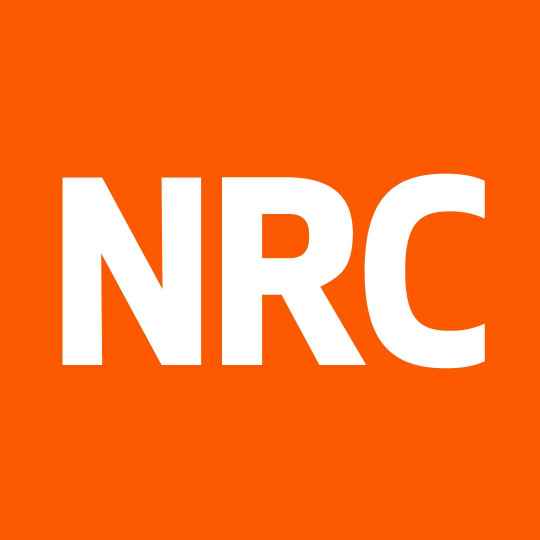Job Summary:
The DRR and Climate Adaptation Program Coordinator will deliver strategic & Operational leadership and manage all DRR & Climate Adaptation programs, ensuring cohesive, high-impact interventions. This role will guide the complete project cycle from needs assessment through implementation and reporting, while promoting stakeholder collaboration, MEAL integration, and team empowerment in alignment with Islamic Relief’s mission. Additionally, the DRR and Climate Adaptation Program Coordinator remain the key person for a sound resource mobilization on DRR & Climate adaptation sector with approaching institutional donors, family donors and UN-Agencies.
- Internal: Country Director, HOP, Provincial managers, Programme development, MEAL, Finance, HR, SC.
- External: Donors, Line ministries, Clusters, UN agencies, INGOs, community leaders.
Duties & Responsibilities
1. Strategic Leadership & Program Development
- Lead the technical design and implementation of Climate adaptation and DRR programs in line with the needs, IRAF country strategy, and donor priorities.
- Lead the collection of climate risk data and the development of climate adaptable initiatives.
- Develop DRR & Climate Adaptation program strategies and ensure integration of cross-cutting themes (gender, protection, climate resilience).
- Support the development, planning, and implementation of a Community-Based Disaster Risk Reduction (CBDRR) agenda/activities for agriculture.
- Document and assess institutional capacities to design risk reduction strategies and community resilience to natural and human-induced hazards for agriculture.
- Contribute to the development of Emergency Preparedness Plan-EPP and response plans for Islamic Relief Afghanistan aligned with the Country Strategic Plan & IRW global DRR Strategies.
- Provide inputs to strategic planning, achievement of targets and required modification of objectives;
- Lead the design and implementation of DRR & Climate Adaptation programs, including:
- Emergency Food Security (Cash transfers, vouchers, food transfers).
- Cash-based interventions (MPCA, Cash for Work, Cash for Seed, Voucher Programs).
- Agricultural recovery (climate-smart agriculture).
- Building communities Resilience (flood protection walls, culverts, check dams, floodways, and canals), and community-based disaster risk management-CBDRM disaster-prone communities (training and equipping the communities on early warning systems, first aid, and basic search and rescue).
- Natural disasters (Floods, Earthquake, Drought, and others) response (Basic health care, Food & Watering, emergency tend provision, WASH services, emergency kits provision, protection, and Shelter construction).
- Man-made/conflict disaster management (returnees’ response, IDP response).
- Conduct needs assessments and market analyses to inform evidence-based programming.
- Develop concept notes, proposals, and budgets for new funding opportunities.pt notes, proposals, and budgets for new funding opportunities.
- Coordinate with relevant government institutions, particularly ANDMA and MAIL, to plan, implement, and monitor project activities.
2. Team Leadership & Capacity Building
- Establish participatory management to optimize resources and efficiency.
- Implement mentoring/coaching for staff development and performance improvement.
- Conduct capacity assessments and provide coaching on DRR/CCA for project staff, local partners, and stakeholders
- Mentor DRR & Climate Adaptation staff and partners through capacity-building on tools like CaLP standards and market-based programming.
- Manage annual leave plans to ensure work-life balance and operational continuity.
- Conduct performance reviews with timely feedback and goal alignment.
3. Quality Assurance & Implementation
- Ensure high-quality deliverables for beneficiaries per SPHERE/CHS standards.
- Monitor field activities to address gaps and adapt strategies.
- Provide technical support to the field DRR & Climate adaptation team
- Develop/Validate tools, SOPs, and training materials to meet humanitarian standards.
- Promote innovation.
4. Stakeholder Coordination & Reporting
- Strengthen coordination with clusters, authorities, donors, and HQ.
- Provide regular updates/data analysis to stakeholders.
- Ensure timely, accurate donor reports (narrative/financial).
5. MEAL & Accountability
- Collaborate with MEAL to track outcomes, conduct evaluations, and adapt programs based on data.
- Empower community participation in monitoring and feedback mechanisms.
- Document success stories and lessons learned for organizational learning.
- Use data for decision-making and program adaptation.
- Conduct regular field visits to ensure quality and smooth implementation of projects
6. Compliance & Safeguarding
- Uphold Islamic Relief’s policies (Safeguarding, Code of Conduct).
- Mitigate risks (e.g., diversion, market distortion) in cash/food distribution.



